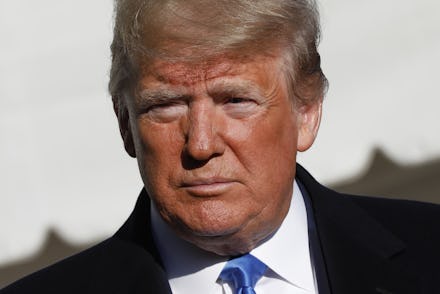Democrats announce articles of impeachment against Trump

For the past few months, many have watched with bated breath the impeachment investigation into President Trump. Today, Democrats officially announced impeachment charges against Trump, setting the stage for the third impeachment of a U.S. president in history. Although Trump's impeachment is not guaranteed — the full House still has to vote on whether to proceed — it's likely the lower chamber's Democratic majority will vote to pursue the charges, which are abuse of power and obstruction of Congress.
The impeachment probe began after an anonymous whistleblower said Trump tried pressuring Ukrainian President Volodymyr Zelensky into investigating Vice President Joe Biden and other Democrats during a July phone call. Trump was accused of withholding congressionally appropriated military aid and a White House meeting with Zelensky as leverage to win those favors. Throughout the process, Trump tried blocking key witnesses from testifying.
As a result, Democrats charged Trump with both abuse of power and obstruction of Congress. In a tweet ahead of the formal announcement, House Speaker Nancy Pelosi wrote, "The president used the power of his office against a foreign country to corrupt our upcoming elections. He is a continuing threat to our democracy and national security."
These charges do not mean Trump is now impeached and out of office. Instead, the full House is expected to vote on the charges next week. If a majority votes to proceed, the impeachment process will move to the Senate, where the Republican-led chamber will begin an impeachment trial. (More on the impeachment process here.)
Public feelings throughout the impeachment inquiry have been complicated. In October, a CNN poll found that 50% of Americans support impeaching Trump. However, that poll was the first time that support for impeachment and removal outpaced opposition.
"Any of these violations of the public trust would compel the members of this Committee to take action," Rep. Jerry Nadler (D-N.Y.), the chairman of the House Judiciary Committee, said. "When combined in a single course of conduct, they state the strongest possible case for impeachment and removal from office. President Trump put himself before country."
Since the impeachment inquiry began, Republicans have referred to it as a "witch hunt." Trump controversially tweeted in October that "all Republicans must remember what they're witnessing here — a lynching."
As expected, Trump tweeted Tuesday about the impeachment charges, too. Calling his presidency "one of the most successful" ever, Trump called the move to impeach "sheer political madness!"
To date, only Presidents Andrew Johnson and Bill Clinton have been impeached by Congress. Neither of them were removed from office, as the Senate did not find the presidents guilty.
Aside from Johnson and Clinton, President Richard Nixon and Trump are the only two other presidents to face a formal impeachment inquiry. So it's clear that Trump's presidency is historical — even if it's not for the reasons he claims.